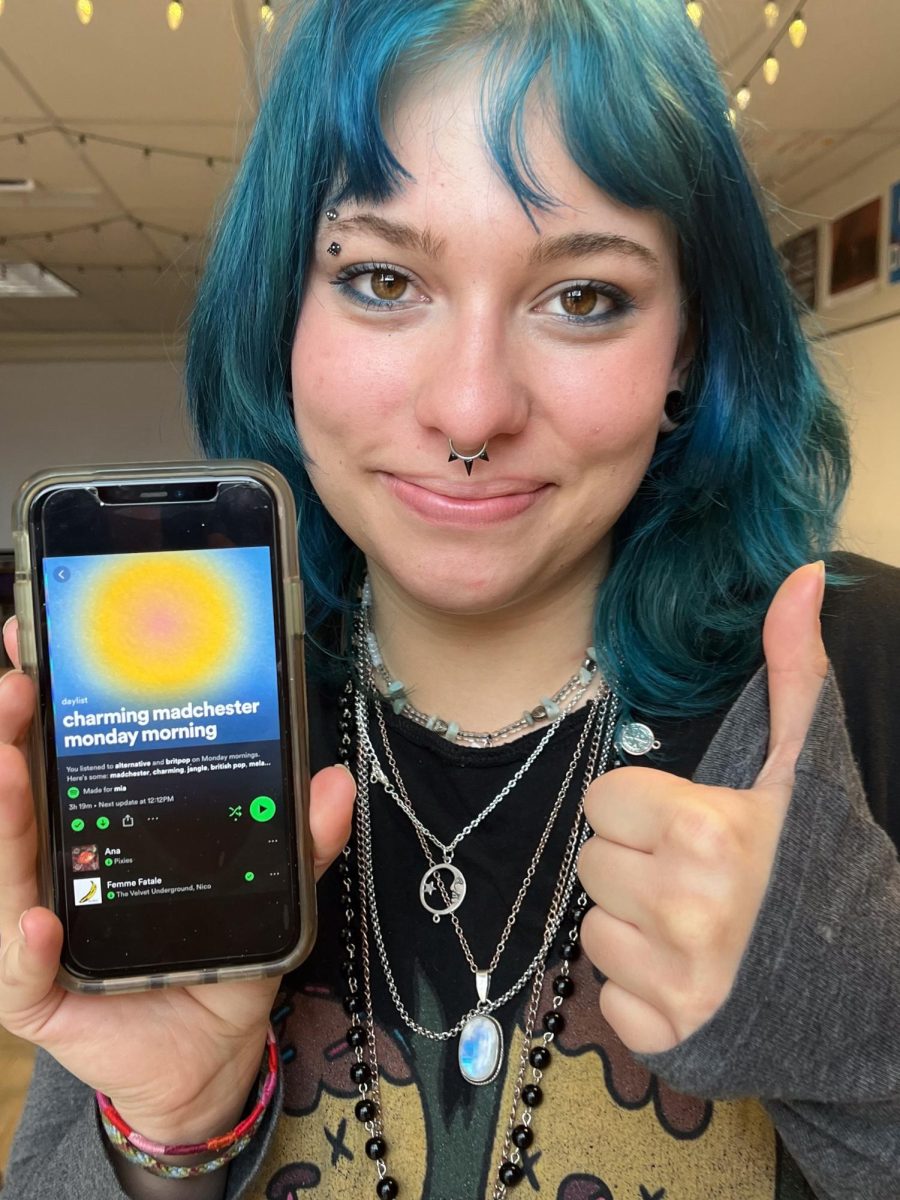Recently I’ve been lost in a sea of moodiness. I can’t seem to find the words to describe my inner world. That was until Spotify showed me the way. Through music genres, I’m finally able to tell people how I’m actually doing, not just fine. I now know I have the perfect “mountain music modern folk Friday afternoon,” or a “charming madchester Monday morning.”
Since Spotify released the Daylist feature on September 12th, 2023, I have been perplexed by the ever-changing playlist. However, the music is not the source of confusion, many of the songs are tailored to each Spotify user’s tastes, with potentially “new” songs mixed in. The puzzling aspect of the Daylists is the highly obscure genres Spotify uses to describe them.
Spotify’s genres span from the basics rock, pop, or classical to cryptic ones like wanderlust, birds, rock-ish, and requiem. Spotify’s collection of genres is what first caught my attention, especially the genre Madchester.
In case you were wondering, from an article in 2022, NPR characterizes Madchester as the music scene from rave culture in Manchester in the late 80s and early 90s. While the single genre of Madchester on Spotify is accurate, when mixed into the Daylists things start to get muddy. American bands like Nirvana, Pixies, and Foo Fighters are suggested to listeners.
Madchester is far from the only strange category on Spotify. Take rockabilly: an early style of rock from the 1950s that leans more Western and has rhythm and blues influences. Or requiem: music that is akin to funeral music, usually religious and somber in tone. Another is egg punk: an internet-based genre that satirizes the serious side of punk by being danceable and energetic. Spotify seems to be teeming with unexplainable genres.
After just scraping the surface of Spotify’s 6,000 genres, I am only left wondering what the point is. I suppose it’s silly and quirky and leads to newspaper articles like this. Still, ultimately, microgenres appear to be meaningless distinctions that could just as easily be lumped in with broader subgenres. When looking at my personal Spotify and the playlists that are made for the genres “new romantic” and “love romantic” I see hardly any differences, especially because they are supposed to be tailored to me. Let alone just the “romantic” genre on Spotify being drastically varied.
Overall it comes across as an attempt to make every single person feel special and individualized for their super obscure music taste. Especially in an age of social media where the pressure to be unique and have you’re own boxed-in aesthetic is heightened, of course, our music platforms aim to make us feel that way too.
In reality when you say “I like madchester,” and I say “I like rock-ish,” it basically means that we both like 90s soft rock. Which also probably means we both enjoy Radiohead. Shocker! And no, you are not the first person to listen to The Bends.



